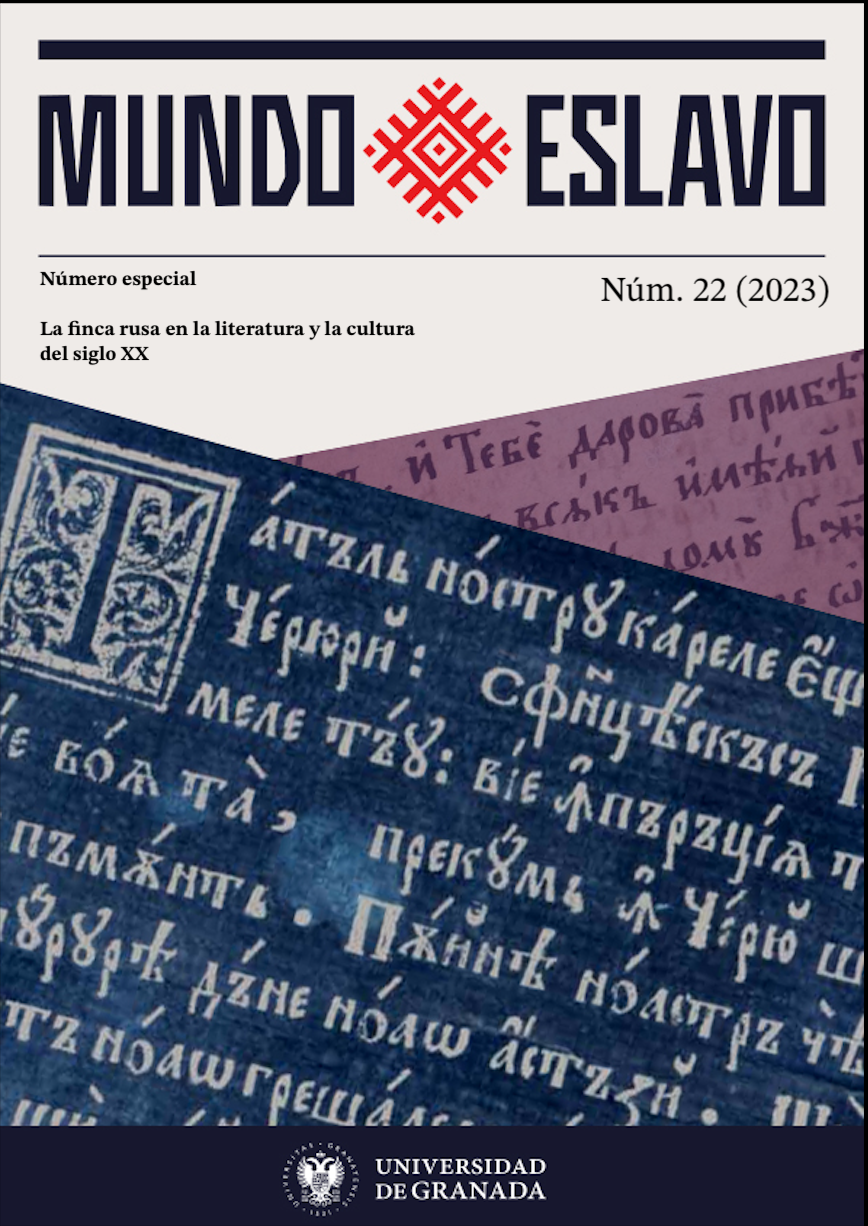The cosmogonic aspect of dacha/summer house in Leonid Aronzon's poem "Komarovo"
DOI:
https://doi.org/10.30827/meslav.22.25991Abstract
In our paper, we analyse the terms dacha (дача) and summer house (особняк) within the cultural field which these terms cover in the Russian literature. In the poem "Komarovo" Leonid Aronzon does not directly use the word dacha as an image and designation of the place where Ana Ahmatova lived. In this way, he transforms the habitus of the social field into the habitus of the cultural field: Aronzon elevates the concept of dacha (dacha) to the concept of a summer house (особняк), which in Imperial Russia is the part of a manor house, the house where landowners lived. Therefore, in the subtext Aronzon suggests that the manor estate (усадьба) represents a place of lofty thought, which is especially evident in the case of the locus of Komarov and Anna Akhmatova. Also, in this poem Leonid Aronzon transforms Anna Akhmatova's dacha topos into a dacha myth. The poet mythologizes the concept of Komarovo, which is diachronic and historical, transforming it into a synchronic and universal one, into an archetype of culture.
Keywords: Aronzon dacha, locus, topos, hierotopos
Downloads
Downloads
Published
How to Cite
Issue
Section
License
Copyright (c) 2023 Mundo Eslavo

This work is licensed under a Creative Commons Attribution-NonCommercial-ShareAlike 4.0 International License.

CC BY-SA: This license allows reusers to distribute, remix, adapt, and build upon the material in any medium or format, so long as attribution is given to the creator. The license allows for commercial use. If you remix, adapt, or build upon the material, you must license the modified material under identical terms.
CC BY-SA includes the following elements:
BY ![]() – Credit must be given to the creator
– Credit must be given to the creator
SA ![]() – Adaptations must be shared under the same terms
– Adaptations must be shared under the same terms
Authors who publish with this journal agree to the following terms:
1. Authors retain copyright and grant the journal right of first publication with the work simultaneously licensed under a Creative Commons Attribution License that allows others to share the work with an acknowledgement of the work's authorship and initial publication in this journal.
2. Authors are able to enter into separate, additional contractual arrangements for the non-exclusive distribution of the journal's published version of the work (e.g., post it to an institutional repository or publish it in a book), with an acknowledgement of its initial publication in this journal.
3. Authors are permitted and encouraged to post their work online (e.g., in institutional repositories or on their website) prior to and during the submission process, as it can lead to productive exchanges, as well as earlier and greater citation of published work (See The Effect of Open Access).













